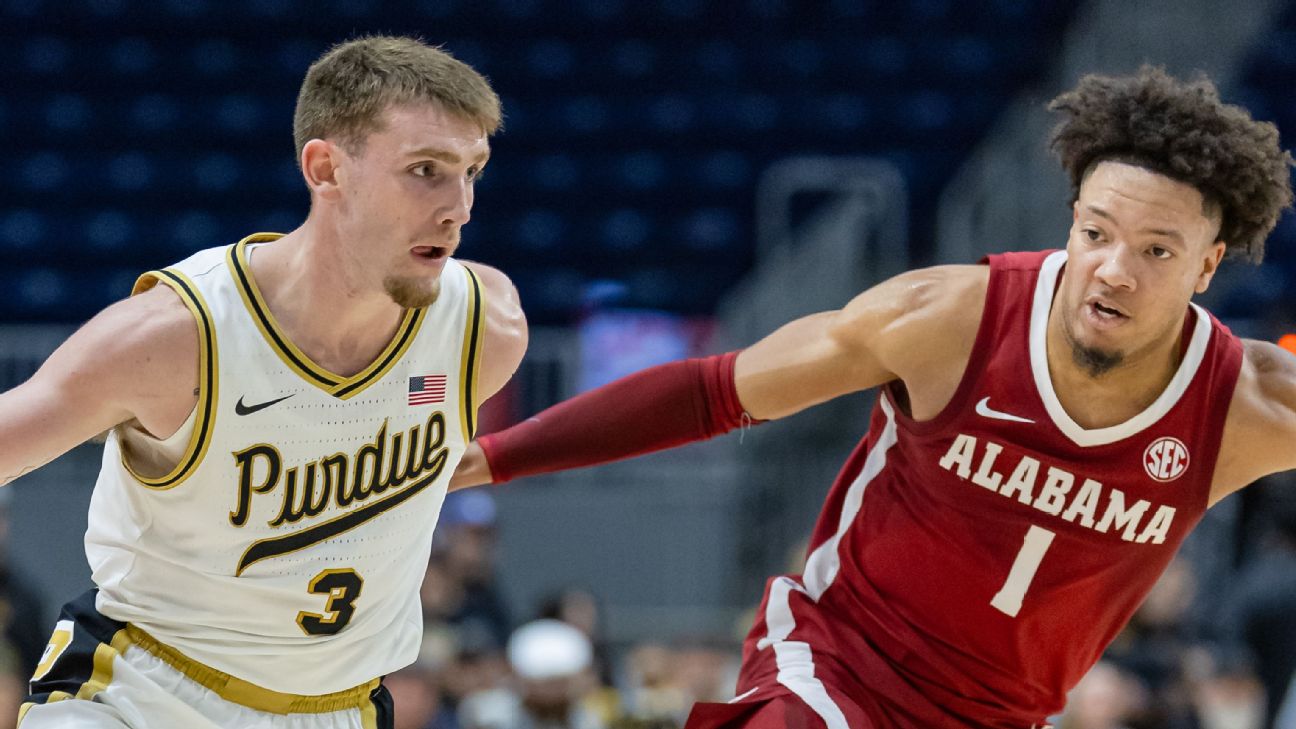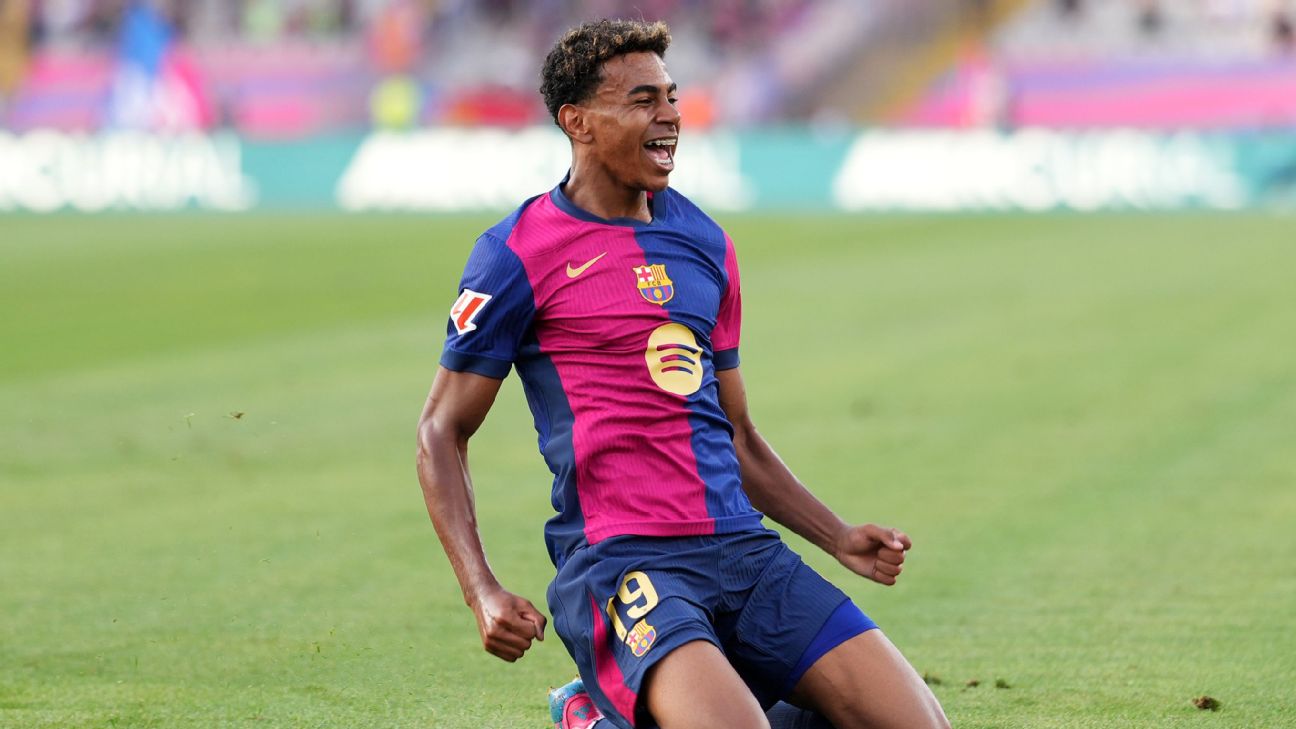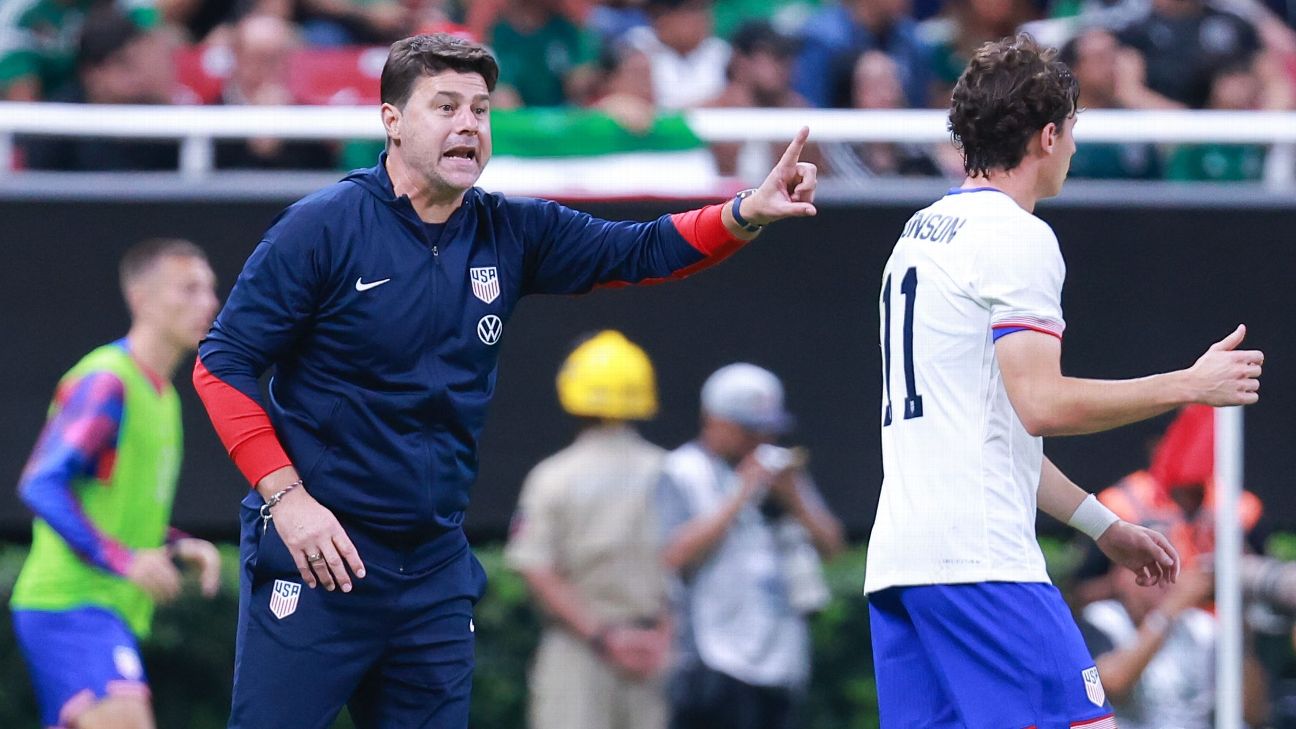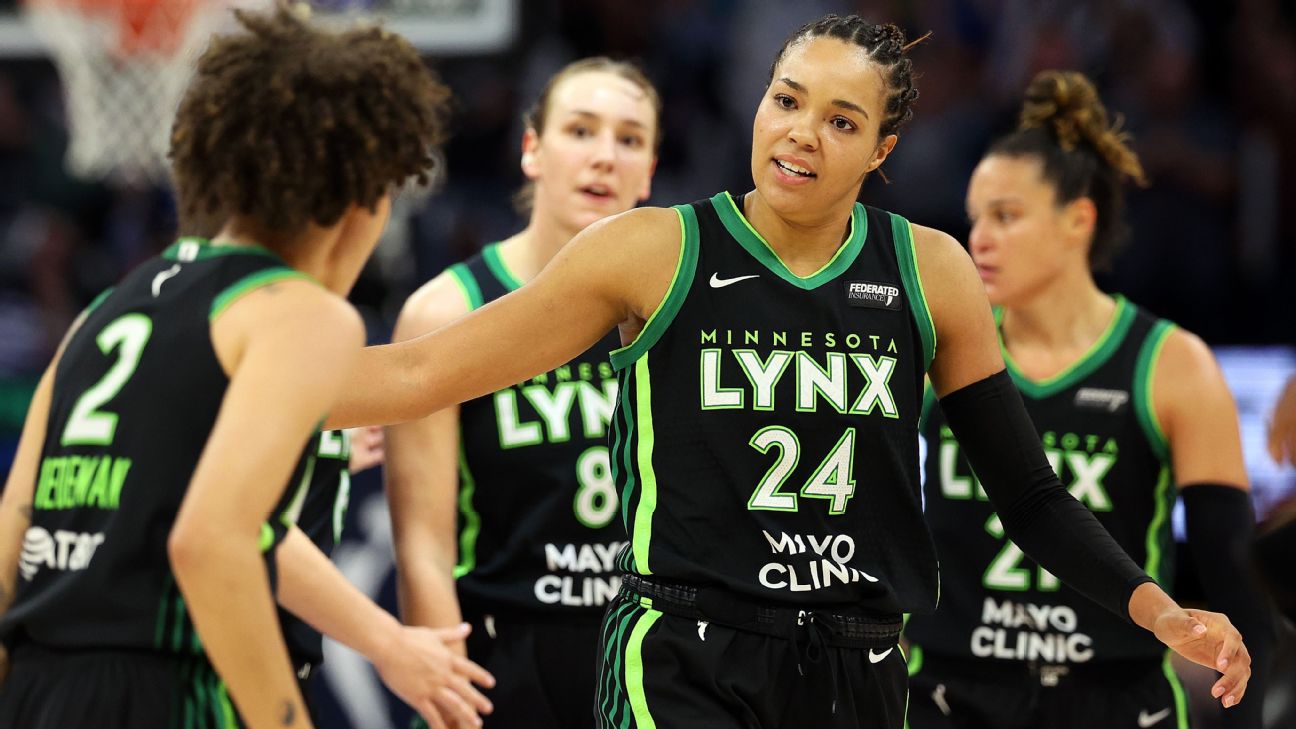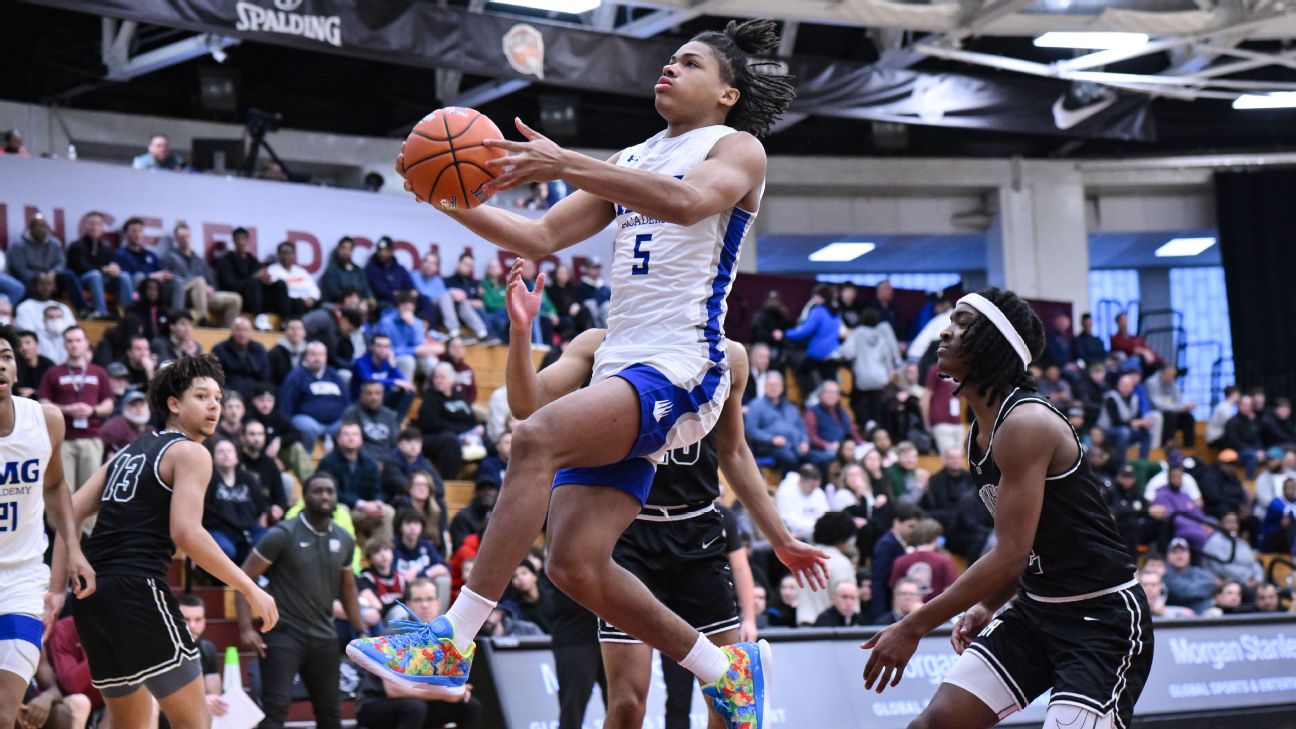![Cleveland Browns wide receiver Amari Cooper leaves the field after the second quarter during the game between the Browns and Philadelphia Eagles on Oct. 13, 2024 at Lincoln Financial Field in Philadelphia. [608x342]](https://a.espncdn.com/photo/2024/1015/r1400939_608x342_16-9.jpg)
Stars remain undefeated with a 3-2 shootout win over Sharks after trailing for 1st time this season
Let's grade every big deal ahead of the 2024 NFL trade deadline, which is Nov. 5 at 4 p.m. ET. I got things started with the Las Vegas Raiders sending wideout Davante Adams to the New York Jets, reuniting Adams with the quarterback he starred with during his time with the Green Bay Packers. I also have grades for the deal that sent receiver Amari Cooper from the Cleveland Browns to the Buffalo Bills, and the Minnesota Vikings' move to acquire Houston Texans running back Cam Akers.
I'm a big believer in judging decisions based on information available at the time. The saying "Let's see how it plays out" isn't an option for general managers making deals for their teams, so why should be it for us evaluating those transactions? So when I'm grading trades, I evaluate them for each team based on on-field impact, cap implications, draft compensation and effects within the context of a team's overall short- and long-term outlook. I like to think about decisions on two axes:
How confident are we in knowing if this is a good or bad decision? How big is the impact of this decision?They'll both play a role in our grades, though a low-impact decision can still receive a strong or poor grade. Low-stakes, clear-cut wins or losses still matter. I'll grade more deals as they happen over the next two weeks. Latest grades are at the top:
Vikings trade for RB Akers in deal with Texans Minnesota Vikings get: RB Cam Akers, 2026 conditional seventh-round pick Houston Texans get: 2025 conditional sixth-round pick Trade date: Oct. 15Grade for the Vikings: B- Grade for the Texans: B
It's déjà vu all over again -- the Vikings traded for Akers, roughly 12 months after acquiring him in the middle of the 2023 season. The move comes at a time when Aaron Jones is a little banged up with a right hip injury, so Akers helps add depth behind Jones (along with Ty Chandler) and can serve as a third back if/when Jones returns. ESPN's Kevin Seifert pointed out that coach Kevin O'Connell spoke glowingly about Akers when asked about him last month.
Akers started two games for the Texans this season while Joe Mixon was injured. He averaged 3.7 yards per carry on 40 attempts in Houston and recorded minus-36 rush yards over expectation, per NFL Next Gen Stats. You can't pin that on blocking, too. On that same team, Mixon is averaging 5.5 yards per carry and has plus-67 rush yards over expectation. Akers has never finished a season with positive rushing yards over expectation. But that Akers was able to get the starts in Mixon's stead at all was an accomplishment. He tore an Achilles in both 2021 and 2023.
For Houston, Akers is superfluous with Mixon back healthy -- especially given his lack of production. The team still has Dameon Pierce and Dare Ogunbowale, the latter of whom is particularly helpful in the passing game.
Ultimately, this is a conditional sixth-seventh future pick swap, so the price is as small as it gets. I wouldn't personally trade for Akers if I were Minnesota, given his injury history and continued lack of efficiency (he had just 2.8 yards per carry between the Rams and Vikings last season), but the cost is so low that it is barely going to move the needle.
Bills add WR Cooper from Browns for third-round pick Buffalo Bills get: WR Amari Cooper, 2025 sixth-round pick Cleveland Browns get: 2025 third-round pick, 2026 seventh-round pick Trade date: Oct. 15Grade for the Bills: A- Grade for the Browns: B
The Bills needed to add a wide receiver before the deadline. That was always going to be the case unless rookie second-round pick Keon Coleman was great right away. That hasn't happened, and Buffalo is way, way too good to let its MVP-caliber quarterback not have another playmaker. In Cooper, the Bills land the receiver they need -- and one they can afford.
Cooper, 30, has been a steady and reliable producer for years. He has played in at least 14 games in every season of his career, which started in 2015, and has reached 1,000 yards in seven of nine of those full seasons. He's also coming off a season in which he reached a career high in yards (1,250) and yards per route run (2.5), despite playing with subpar quarterbacks Deshaun Watson, Joe Flacco, PJ Walker and Dorian Thompson-Robinson. He played more of a deep-threat role than he ever had before last season, with 14.2 average air yards per target and career highs in yards (636) and catches over expectation (5.6, per NFL Next Gen Stats) on passes 20-plus yards downfield.
He does not come without risk. Cooper's production has dropped substantially in 2024, with his yards per route run dropping to 1.2, though his numbers against man coverage only -- often a better indicator of skill -- are almost identical. His open scores also indicate some decline, dropping steadily each year from 2020 starting at 64, 58, 54, 54 and then 46 both last season and this season. That his catch and yards-after-catch scores -- which dropped from 74 and 46 last season to 31 and 34 this season -- are the drivers of his 2024 production falloff is actually a good sign for Buffalo. Those numbers need more time to stabilize, and the falloff is more likely to be noise. Still, there are no guarantees Cooper hasn't actually declined a fair bit given his age.
The real question this all hinges on: Is the reason Cooper has been far less efficient simply because of Watson's struggles? No matter how you divide the blame between the offensive line and Watson himself, Cleveland's passing game has been horrendous, so it's a reasonable bet for Buffalo to make that Cooper will play much better with Josh Allen.
One obstacle Buffalo faced in acquiring a new receiver was that it was basically out of cap space, with just $3.3 million left this year and most of its restructure possibilities tapped out (and only $11 million next year, per OverTheCap.com). Cooper fills the need for a wide receiver and does so cheaply: Cleveland restructured his deal before the season, so he will cost the Bills just over $1 million this season.
In terms of draft pick compensation, the swap works out to the Browns landing the equivalent of around pick No. 100 for Cooper, assuming a later third-round selection by the Bills. His contract is up at the end of the season, so this is likely to be a rental.
A few other midseason rentals dealt in recent years in which the acquiring team had to pay minimal salary: Chase Young to the 49ers (third-round pick), Robert Quinn to the Eagles (fourth-round pick) and Von Miller to the Rams (second and third-round picks).
Cooper certainly isn't the player Miller was in 2021, but he also probably means more to Buffalo's Super Bowl chances than Young did to the 49ers' last season. There's a fair argument the Bills might have been better off trading for Carolina's Diontae Johnson or paying more to get the Raiders to pay most of Davante Adams' salary and acquiring him. But it's hard to know whether Johnson was available this early, and once Adams was off the table, it made sense for the Bills to move on Cooper rather than risk getting shut out at the position. In other words, it's easily worth it for the Bills to make this move; their Super Bowl window is open, and they need to go try to win a title.
For Cleveland, which is 1-5, this signals the team knows what was already apparent: Its 2024 season is over. The Browns are ranked 27th by ESPN's Football Power Index (FPI), and their offensive FPI rating is only better than the Dolphins' (with Tyler Huntley) and the Patriots' (with Drake Maye).
The Browns had no other move here than to move on from Cooper. They had to cash in on him now in exchange for a draft pick they can use when they are contenders again. I might have expected slightly more for Cooper, but if this was what the market yields, it was probably best for Cleveland to make the deal now rather than wait and risk an injury.
Jets land WR Adams from Raiders for conditional pick New York Jets get: WR Davante Adams Las Vegas Raiders get: 2025 conditional third-round pick Trade date: Oct. 15Grade for the Jets: A- Grade for the Raiders: B-
It actually happened: The Jets reunited Davante Adams with Aaron Rodgers, despite a 2-4 start and firing their coach a week ago. And you know what? It was the right move.
The Jets had pushed their chips pretty far in with the hope of a Super Bowl run before the 40-year-old Rodgers calls it a career. The bull case remained the same Tuesday as it did in the preseason: A future Hall of Fame quarterback paired with an elite defense. The problem? The offense wasn't good enough. Rodgers isn't the MVP he was a few years ago, and the team needed another good pass catcher besides Garrett Wilson. Enter Adams. At this stage, what's splashing the pot with a few more chips anyway?
There are fair questions about who exactly the Jets are getting, though. At his peak, Adams was the NFL's best wide receiver. He led the NFL with 3.1 yards per route run and 18 touchdowns in 2020, the latter coming despite playing in 14 games. He also recorded a 99 open score, the highest possible score in our receiver metrics. In 2021 and 2022 -- his final season in Green Bay and then his first season as a Raider -- he still put up huge numbers: He averaged 2.7 yards per route run (third best) and had more than 3,000 receiving yards. His open score remained an elite 85 and 81 in those two seasons, respectively.
We began to see the first signs of Adams' decline in 2023. His yards per route run dropped to 2.0, and his open score fell to 71. Those two numbers continued to fall in the three games he played this season, to 1.8 and 64, respectively. While the yardage drop can be somewhat attributed to the decline in quarterback quality, open score is designed to account for the quarterback on the field. The signs of what appear to be his decline are happening for him at an age (he'll turn 32 in December) when we would expect it.
At this stage, Adams is probably a top-15 or top-20 wide receiver. He's also worth more to the Jets than any other team, however. Chemistry with Rodgers at this stage seems elusive; somehow Rodgers and Wilson have struggled to connect at times, while Allen Lazard, a much worse receiver who has spent years with Rodgers, has thrived. New York has no more time to waste.
It's ironic, perhaps, that some of the recent Jets dysfunction stems from ceding too much control to Rodgers, and yet the rational move at this stage was to give in to what he (almost certainly) wanted in acquiring Adams.
The offense, which looked much better in Monday's 23-20 loss to the Bills after the team replaced Nathaniel Hackett with Todd Downing as the playcaller, will be better with Adams. As of Tuesday morning, per ESPN's Football Power Index, the Jets rank as the 11th-best team, and they have a 46% chance to reach the playoffs. They have a 4% chance to reach the Super Bowl. Those projections likely will go up with the acquisition of Adams.
The cost to acquire Adams is not overly significant. A third-round pick that can become a second-rounder only in the event things go very well -- Adams would have to be an All-Pro or active for the AFC title game or Super Bowl. The Raiders are not eating any of his salary, so the Jets will pay a prorated portion of the roughly $17 million in cash he was due this year. That is a value price for him with 11 games left.
Adams might not remain a Jet beyond 2024, but the organization has to be OK making this deal as a rental, because it very well could be. He is scheduled to make more than $36 million in cash in 2025, so if the Jets cannot work out a new contract with him before then, they presumably would cut him. That is still OK: The point of this deal is to improve the Jets right now.
By far the most likely result of all of this is we end up looking back on this deal as a burned third-round pick by the Jets. But that's not what this trade is about for them: They are playing for the upside, the less likely scenario where a few breaks go their way. In the world in which that happens, Adams absolutely could be the player they need to make a run.
As for the Raiders, I want to be clear that the B-minus grade is strictly for their decision-making today. Their entire Adams trade saga deserves an F for the obviousness of the team's error. Adams has been an aging and declining player on a bad team with a value contract for a long time now, and it was only stubbornness by the franchise that it did not trade him before this season, or last trade deadline, or the offseason before that. The delay was costly: Vegas could have gotten far more in return 12 months ago. Instead, it kept him in order to deal him for less now while achieving zero playoff berths as a result.
That being said, once the Raiders found themselves in the position they did Tuesday -- with a lackluster team and a 32-year-old star receiver who wants out -- of course the correct move is to deal him. Whatever the best price they could get was the best price they could get. Still, they should have tried to take on Adams' salary in exchange for additional draft compensation (if that was offered to them).
The Raiders have $26 million in 2024 cap space and $80 million in 2025 cap space, per OverTheCap.com. They might not be able to use all of that cap space efficiently, and this offered them an opportunity to gain extra draft capital to convert Adams' salary into a bonus they pay. I won't overly criticize this point because we don't know if the Jets wanted to do that -- their cap situation is not all that different, though large contracts for Sauce Gardner and Wilson loom. We also don't know if they would have offered fair compensation, but paying down Adams' deal should have been Las Vegas' preference. If the Raiders not taking on Adams' salary kept other teams out of the negotiations (Buffalo?), doing this deal was even more costly.


